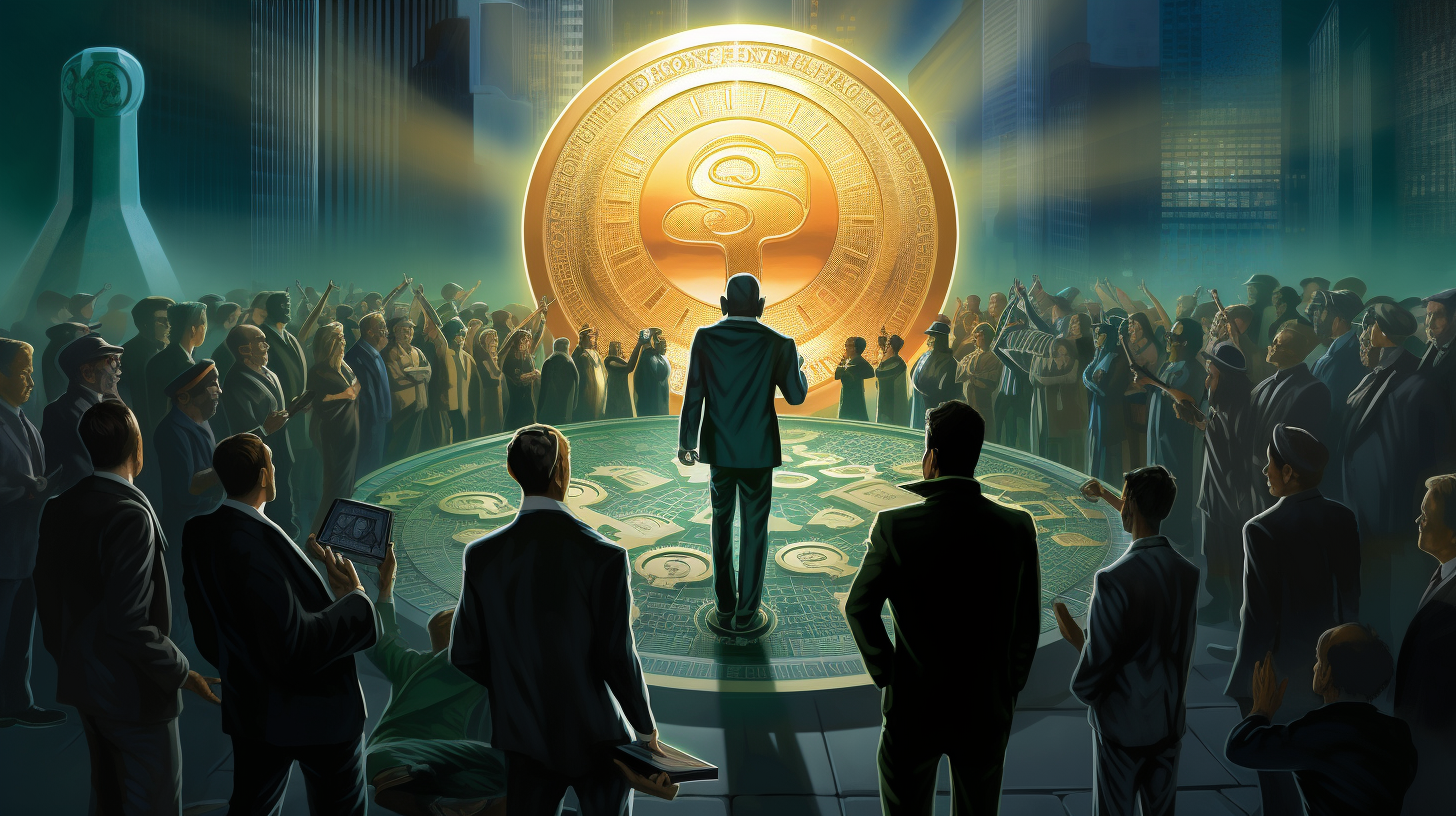The world as we know it is under siege – not by some formidable external force, but by an internal revolution that’s reshaping the pillars of finance. Welcome to the domain of Decentralized Finance, or DeFi, the arena where the democratic ethos of cryptocurrency surges into the fabric of everyday transactions. This radical movement has moved past being a nascent trend to becoming the standard-bearer for a new age of financial freedom.
Why DeFi Matters
DeFi shrugs off the traditional hierarchies and gatekeepers of finance. It decentralizes power, placing it squarely in the hands of the people – those who dare to dream of autonomy over their financial destinies. It’s not just about investments; it’s about rendering traditional banking models obsolete, handing the reins of financial control to those who use the services. ‘Your money, your rules’ – the clarion call of DeFi echoes throughout the crypto-cities.
The Mechanics of the Movement
At its core, DeFi uses blockchain technology to facilitate financial services previously exclusive to banks or financial institutions. From loans and insurance to asset trading and yield farming, what once took an army of suits and ties can now be executed by smart contracts – self-executing contracts with the terms of the agreement directly written into code, and transactions verifiable by anyone on the blockchain.
The Players in the Field
Picture a bustling bazaar of financial services, with platforms like MakerDAO, Aave, and Compound drawing in scores of users. They operate as decentralized applications (dApps) built on the Ethereum blockchain, among others, each offering nuanced iterations of financial services. Without signup fees, service charges, or the bureaucratic red tape, they’re challenging the old guard – disrupting the disruptors themselves.
Real-Life Impact & Innovation
The hypothetical has become reality. Individuals, previously on the fringes of financial services owing to geography or status, now engage in global commerce. DeFi doesn’t discriminate; it liberates. And innovation is skyrocketing. Imagine a scenario where, with just a smartphone, a farmer in a remote village invests in a global real estate fund, or a student in a bustling metro city opens a collateral-free loan for tuition.
Challenges on the Horizon
Yet the path of revolution is never devoid of challenges. DeFi invites scrutiny when it comes to security, regulation, and scale. For a world used to the stringent regulation of financial systems, the Wild West of DeFi raises questions – how does one regulate a system designed to be unregulatable? Furthermore, the recent high-profile exploits have cast shadows of doubt on the security promise of DeFi protocols.
Looking to the Future
As we advance, central bank digital currencies (CBDCs) could reshape international trade agreements, leveraging blockchain’s transparency and cross-border ease. But DeFi’s pure, democratic essence may clash with CBDCs’ top-down approach. The conversation is as complex as it is fascinating, begging the question: can both coexist in a future where digital wallets have usurped bank accounts?
Decentralized finance stands as a testament to human ingenuity and the relentless pursuit of financial autonomy. Its story is still being written, leading many to speculate on the next wave of financial democratization. Yet one thing is certain – DeFi is not just a financial model; it’s a movement, a philosophy, and perhaps most importantly, a beacon for financial democracy.
